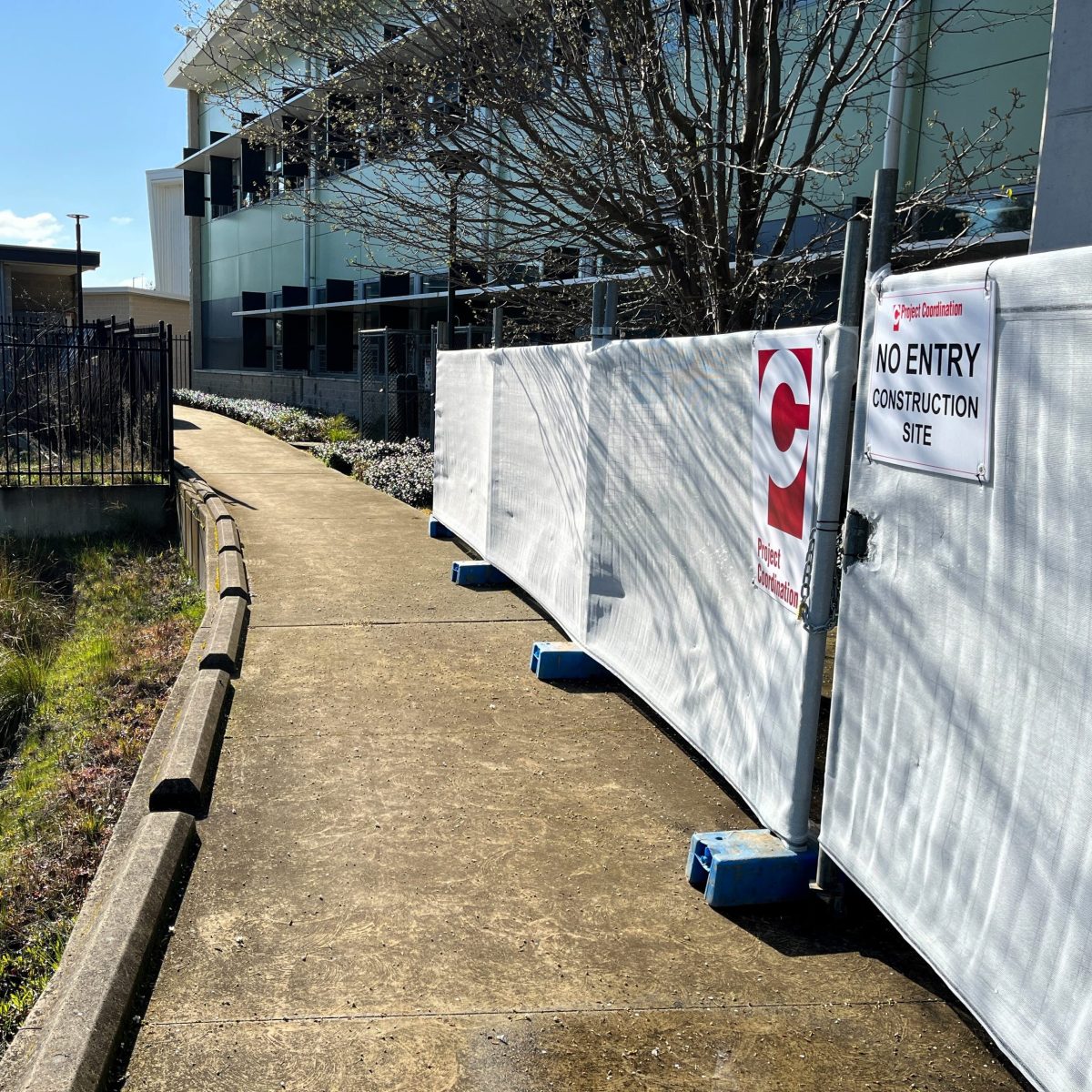
The Gungahlin College Expansion construction site when it commenced. It is now almost complete. Photo: Project Coordination.
Three of the 10 ACT projects impacted by the collapse of Canberra builder Project Coordination are ACT Government contracts.
They are the Fitzroy Pavilion at Exhibition Park, which is to be refurbished so it can cater for large community and multicultural events, the Gungahlin College Expansion and the lighting upgrade and door fit-out for the LegalAID offices in Allsop Street in the city.
Project Coordination directors called in the administrators on Tuesday after failing to secure finance to keep the 50-year-old firm running despite having $120 million worth of projects in the field and a further $90 million ready to start.
RSM Australia partner Jonathon Colbran said 14 projects – 10 in the ACT and four in NSW – were impacted by the company’s collapse and were at various stages of construction, from design and early works to some nearing completion. All work had ceased.
But the Administrators would not reveal any details of the projects, saying they were talking with each project owner to determine next steps, and it was up to them whether they wanted to be identified.
A government spokesperson said the affected projects were at different stages of development and Major Projects Canberra was still working through their individual situations.
The Gungahlin College Expansion was almost complete while the Fitzroy Pavilion refurbishment was still at design stage and the LegalAID project was not a large piece of work.
The spokesperson said it was hoped that finding new builders to finish off the college and take on the other projects would not be a lengthy process.
Chief Minister Andrew Barr said the company’s going into administration would cause much pain and uncertainty in the construction sector and highlighted the importance of a public infrastructure pipeline to keep projects flowing.
“It’s always difficult when any company goes into liquidation,” he said. “It generally means the loss of jobs, uncertainty and is traumatic for everyone involved.
“The government is also concerned about the flow-on impacts that these liquidations have on local subcontractors who may be left in debt.”
But he said a public infrastructure pipeline with a range of project sizes and types could reduce that uncertainty by having projects continuously coming to the market into the future.
“We will also continue to pursue innovative procurement models that appropriately share risk while achieving value for money outcomes that support both industry and our community as we deliver our infrastructure program,” Mr Barr said.

The Fitzroy Pavilion refurbishment is only at design stage. Photo: EPIC.
The collapse of such a longstanding, reputable firm with a long pipeline of work has stunned the ACT building industry.
Master Builders ACT Member Services Director Ashlee Berry said this would have a devastating impact on employees, subcontractors, and suppliers in the local building and construction industry.
“MBA will be assisting our members, especially our subcontractors and suppliers, who will be deeply impacted by this announcement,” she said.
The building and construction industry has been grappling with supply chain issues, labour shortages and escalating costs since the pandemic, with these issues compounded by the Reserve Bank’s multiple interest rate rises and a tightening of lending.
But Project Coordination directors thought the company was healthy enough to weather the storm.
“We thought we had the means, forward order book, capability and industry goodwill to get through this,” they said.
Chairman Paul Murphy said the current environment was the worst he had ever seen.
“The economic and regulatory environment that building companies are working in now is more challenging than any other I’ve experienced in the past 50 years – worse than the recessions in the 1980s and 1990s and the Global Financial Crisis in 2007-2008. Nothing has been as bad as this,” he said.
RSM’s initial inquiries showed the company owed about 200 creditors a total of $20 million.
It has slated a creditors meeting for 2 April, online and in-person in Canberra.




















